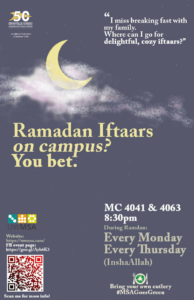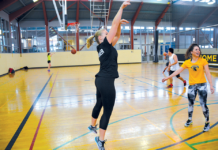RAMADAN MUBARAK!
For those unfamiliar with Ramadan, it is a holy month in Islam. It is the most anticipated month of the year for millions of Muslims around the world who prepare themselves for this blessed and spiritual time. During Ramadan, Muslims fast from sunrise to sunset.
Now some might think, “How do you survive an entire day without eating or drinking?” and “Isn’t it difficult?” To answer the latter — yes it’s true; fasting for Ramadan is difficult… for the first couple of days. After the initial difficulties, it is a matter of making the most of this blessed time. There are countless articles and videos on how to properly consume nutrients, so as to take full advantage of Ramadan. So here are the dos and don’ts for fasting during the holy month.
THE DO’S
1: Water – Fluids are vital for your body during fast, and that’s why it is important to drink plenty of water. Hydrating your body from iftar (the sunset meal which Muslims break their fasts) to suhoor (sunrise, when Muslims begin fasting) is crucial. It is recommended that the average adult drink eight glasses of water to prevent dehydration.
2: Sleep – At least six to eight hours of sleep daily are required to avoid mental and physical exhaustion during the day.
3: Balanced meal – It is always important to have a balanced and varied iftar. For example, a meal could consist of dates, soup, salad, a main dish, fruits and a small treat.
4: Physical activity – It is encouraged that you walk or participate in some form of light exercise.
5: Before-sunrise meal – Suhoor is the second most important meal for Muslims to have during this month and was emphasized by the Prophet Muhammad. It not only fills your body with energy, but it also helps regulate your blood sugar. It is usually recommended that one has a light suhoor. An example of that would be to have fruits (such as dates) and water or milk.
THE DON’T’S
1: Unhealthy suhoor meals – It is best not to consume fatty foods during the night or at suhoor because they may impede your productivity during the day.
2: Eating too much at iftar – While everyone gets excited for when it is finally time to eat, it is also easy to be swept away and consume excessive amounts of food rapidly. To avoid extreme fullness and discomfort, consuming a reasonably small amount of food is preferable.
3: Sweets – The most difficult thing to avoid is sweets. They are tempting! However, any fruit is preferable to pastries.
The University of Waterloo Muslim Students’ Association is offering free iftars every Monday and Thursday during Ramadan.

- Sarah Masri is the Marketing Director for the UW Muslim Students Association.






























